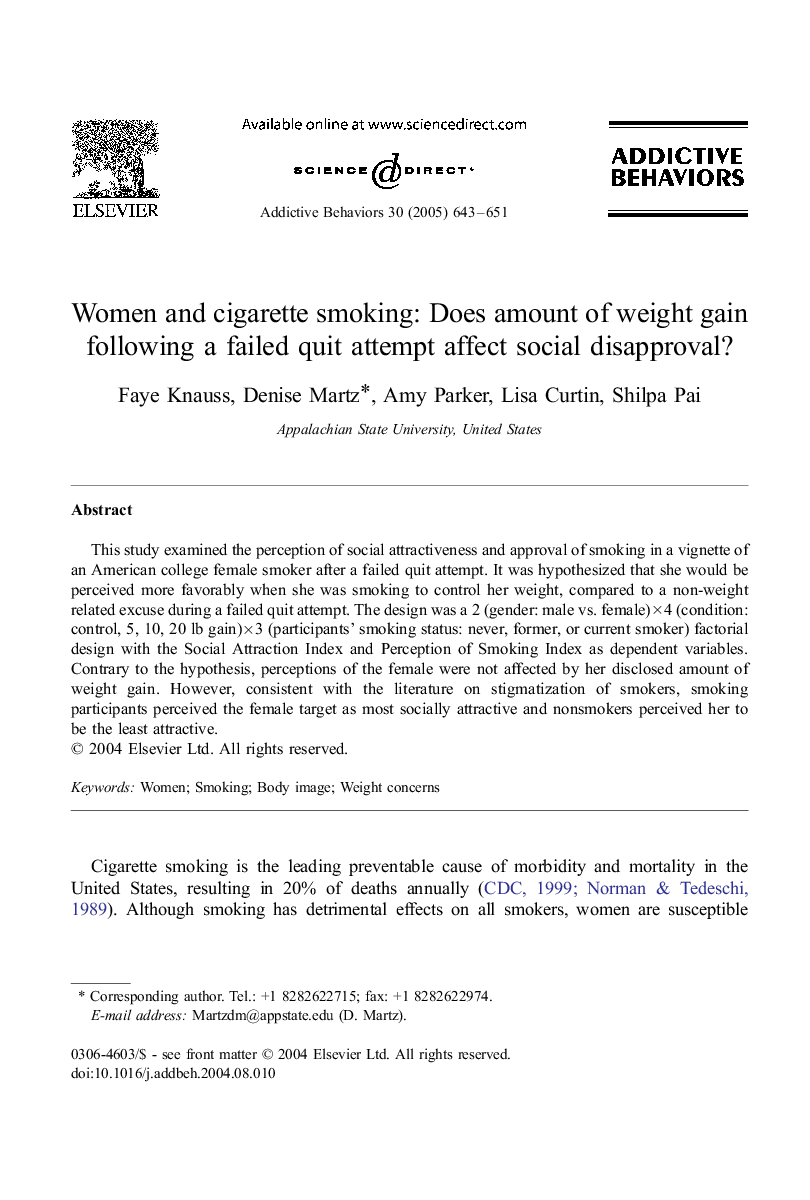| Article ID | Journal | Published Year | Pages | File Type |
|---|---|---|---|---|
| 10444022 | Addictive Behaviors | 2005 | 9 Pages |
Abstract
This study examined the perception of social attractiveness and approval of smoking in a vignette of an American college female smoker after a failed quit attempt. It was hypothesized that she would be perceived more favorably when she was smoking to control her weight, compared to a non-weight related excuse during a failed quit attempt. The design was a 2 (gender: male vs. female)Ã4 (condition: control, 5, 10, 20 lb gain)Ã3 (participants' smoking status: never, former, or current smoker) factorial design with the Social Attraction Index and Perception of Smoking Index as dependent variables. Contrary to the hypothesis, perceptions of the female were not affected by her disclosed amount of weight gain. However, consistent with the literature on stigmatization of smokers, smoking participants perceived the female target as most socially attractive and nonsmokers perceived her to be the least attractive.
Related Topics
Life Sciences
Neuroscience
Behavioral Neuroscience
Authors
Faye Knauss, Denise Martz, Amy Parker, Lisa Curtin, Shilpa Pai,
